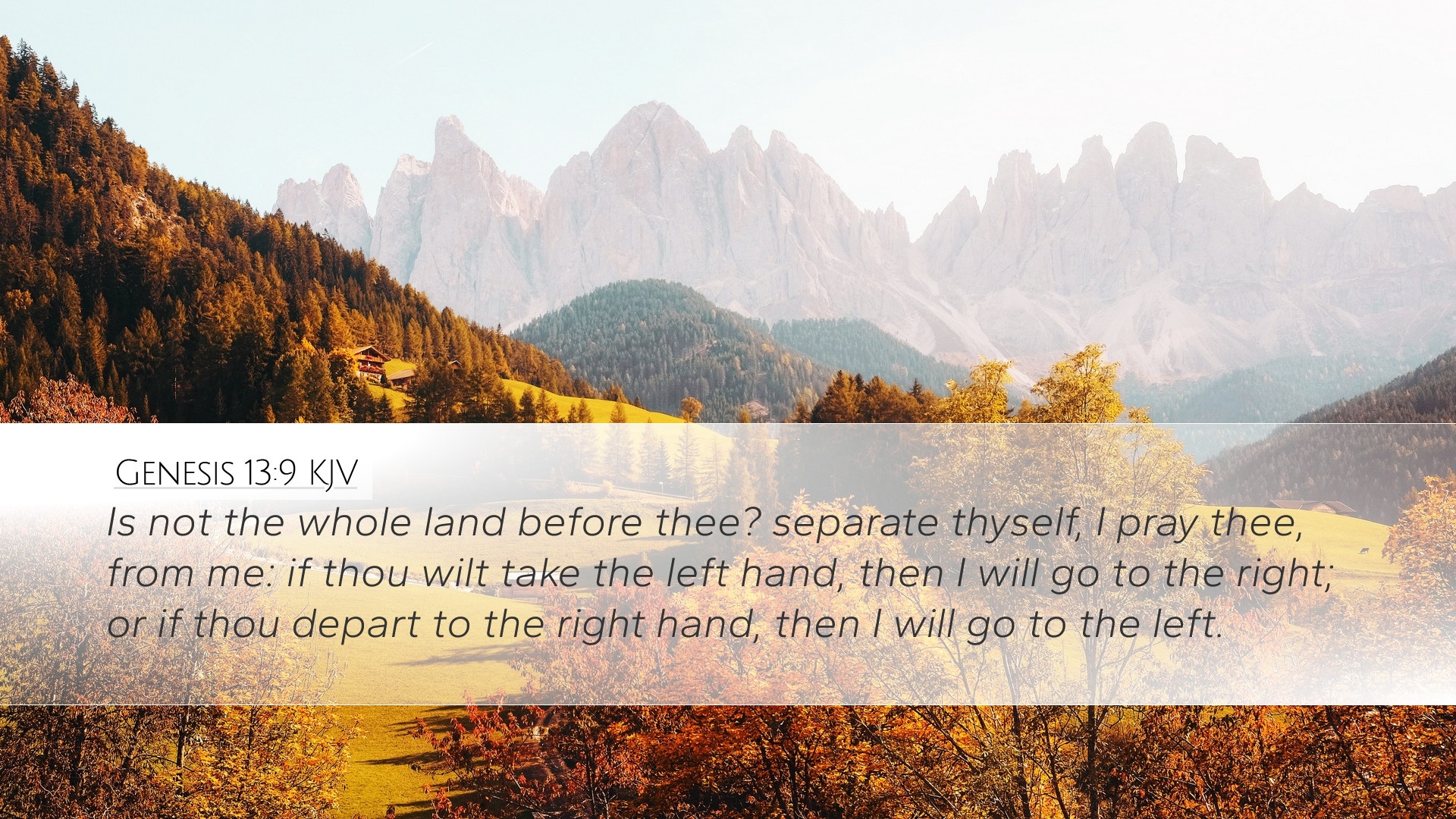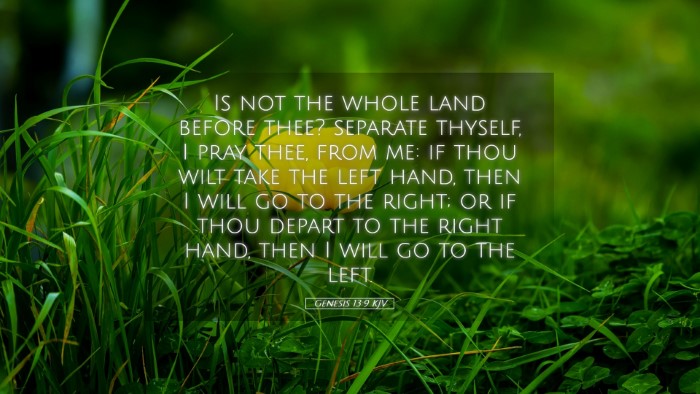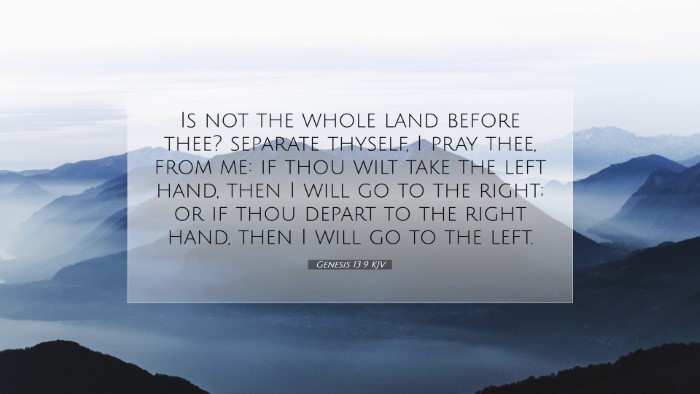Commentary on Genesis 13:9
Genesis 13:9 states: "Is not the whole land before thee? Separate thyself, I pray thee, from me: if thou wilt take the left hand, then I will go to the right; or if thou depart to the right hand, then I will go to the left." This verse is situated within the broader narrative of Abram and Lot and highlights themes of conflict resolution, divine guidance, and the importance of land in the biblical context. Various public domain commentaries provide insights into these themes that are relevant for pastors, students, theologians, and Bible scholars.
Contextual Background
This passage occurs after Abram and Lot had amassed considerable wealth, resulting in strife between their respective herdsmen due to the limited resources in the land they occupied. The conflict prompts Abram to propose a solution that demonstrates his character and faith.
Insights from Public Domain Commentaries
Matthew Henry's Commentary
Matthew Henry highlights Abram's generosity and wisdom in resolving the conflict with Lot. He notes that:
- Abram's Character: Abram's willingness to let Lot choose first illustrates a spirit of humility and selflessness. Rather than insisting on his rights, Abram prioritizes peace over personal gain.
- Theological Principles: Henry emphasizes that Abram's approach models the importance of mediation and reconciliation in interpersonal relationships. This reflects the divine character of God who desires peace among His people.
- God's Sovereignty: Even in conflicts, God's sovereign plan is unfolding. Abram's ability to trust in God’s provision, irrespective of Lot's choice, speaks to a profound faith that believers are called to embody.
Albert Barnes' Notes on the Bible
Albert Barnes provides a detailed explanation of the geographical and spiritual implications of Lot's choice:
- The Whole Land: The phrase "the whole land before thee" underscores the abundance of God’s provisions, emphasizing that there is enough for everyone. Barnes notes that this reflects God's generosity in blessing His people.
- Separation: Barnes suggests that the separation between Abram and Lot signifies a turning point. It reflects a prioritization of spiritual values—Lot's eventual choice leads him towards Sodom, a decision marked by moral implications.
- Lessons in Leadership: Abram’s deference highlights a critical aspect of leadership: the ability to allow others to choose while maintaining one’s own integrity and faith in God’s promises.
Adam Clarke's Commentary
Adam Clarke focuses on the relational dynamics and implications of the decision-making process exhibited in this verse:
- Lot's Perspective: Clarke interprets Lot's choice of the region near Sodom as a manifestation of human shortsightedness, prioritizing immediate benefits over spiritual concerns. This observation connects to the broader biblical narrative of the consequences of wise versus foolish decisions.
- Faith in Conflict: Clarke remarks that Abram’s proposition is rooted in faith rather than fear. By letting go of personal interests, Abram is implicitly trusting God to fulfill His promises, regardless of Lot's direction.
- Choice and Consequence: Clarke helps the reader reflect on the significance of choices in life, indicating that the path one chooses can lead to blessings or complications based on one’s values and divine alignment.
Application and Reflection
This verse invites us to ponder our attitudes in the face of conflict and our understanding of divine provision:
- Conflict Resolution: Reflect on Abram's approach to resolving disputes. How can we emulate this spirit in our relationships and congregations?
- Faith in God’s Abundance: Consider how trusting in God’s provision can influence our decisions, especially when faced with challenging circumstances.
- Understanding Choices: What choices do we face that may have implications for our spiritual journey? How do we prioritize our relationship with God over material gain?
Conclusion
The examination of Genesis 13:9 through the lenses of respected commentaries enriches our understanding of the text. It reveals a powerful example of faith, humility, and the dynamic nature of divine guidance. As we reflect on these insights, may we strive to embody the characteristics of Abram in our faith journeys, trusting God's sovereign hand in all our decisions.


